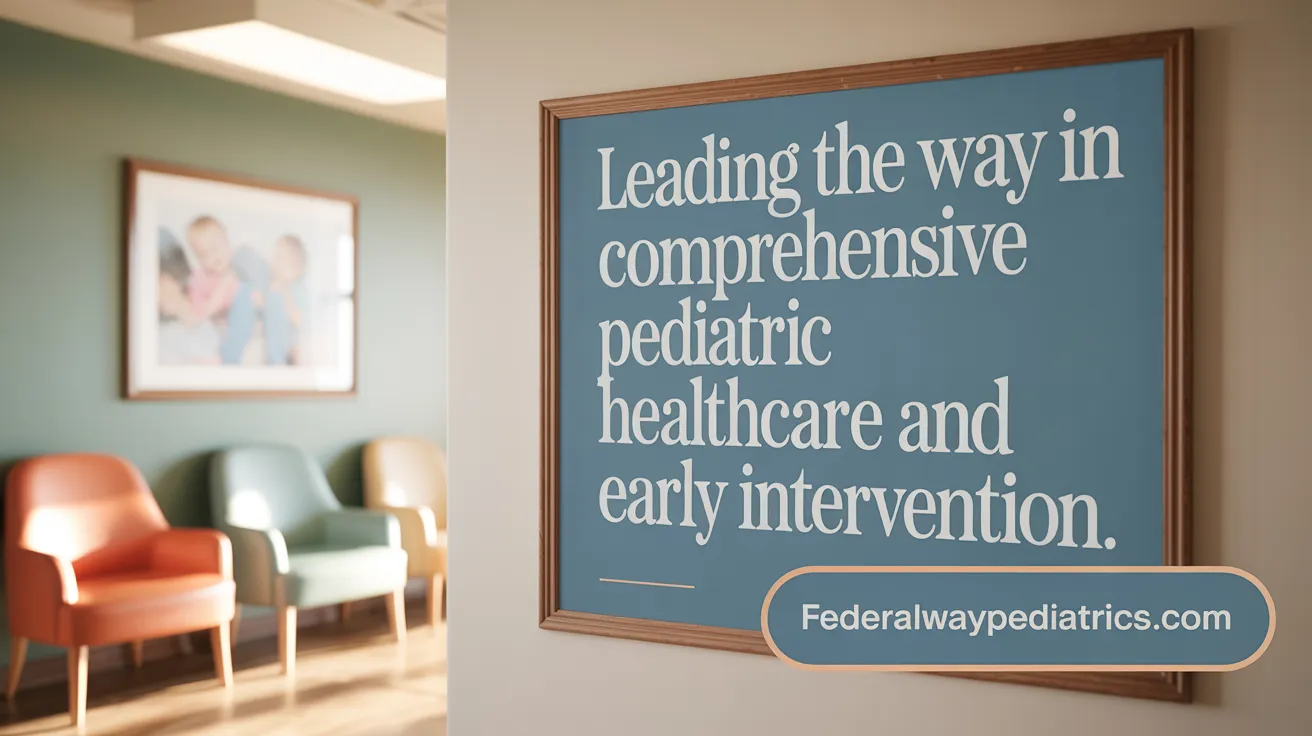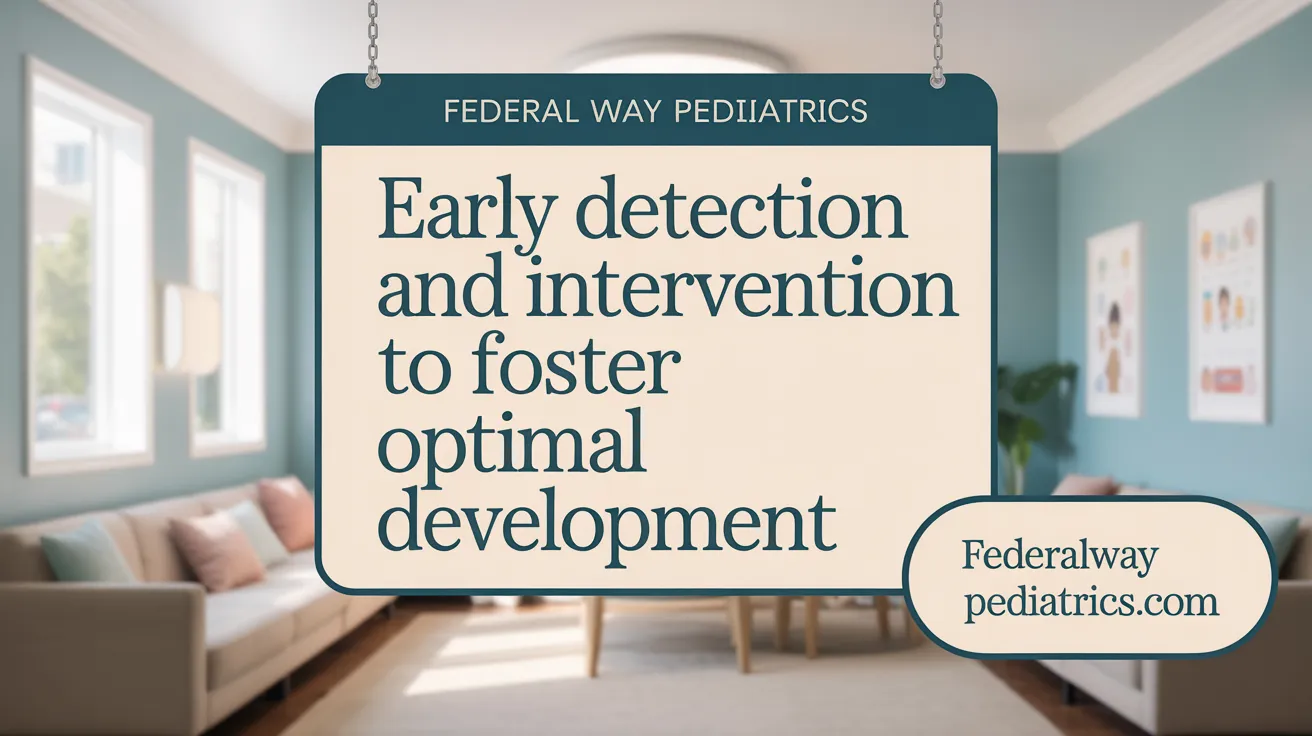Unveiling the Comprehensive Role of Pediatricians in Childhood Development
Pediatricians serve as the cornerstone in promoting the growth, health, and wellbeing of children from infancy through early adulthood. Beyond treating illnesses, these specialized medical professionals provide continuous monitoring of physical, cognitive, emotional, and social development, guiding families with proven strategies and interventions. This article explores the multifaceted role pediatricians play in supporting child development, their leadership in pediatric primary care, mental health contributions, and the best practices they employ to foster lifelong healthy behaviors in children and adolescents.
Pediatricians as Guardians of Child Development and Wellbeing

What is the role of pediatricians in supporting child development and wellbeing?
Pediatricians are essential advocates and professionals dedicated to a child's healthy growth from birth through adolescence. They conduct regular well-baby and checkup visits to monitor physical, emotional, cognitive, and social development.
During these visits, pediatricians perform developmental screenings focused on language, motor skills, social interaction, and other milestones, enabling early detection of delays or concerns. These assessments may include observing behaviors, reviewing medical histories, and using standardized questionnaires. When issues are identified, pediatricians recommend treatments such as therapy or further evaluations, ensuring early intervention that can significantly improve lifelong outcomes.
Apart from monitoring development, pediatricians offer valuable guidance to parents and caregivers. They advise on healthy eating habits, sleep routines, safety practices, and behavior management strategies. This support helps families promote an environment conducive to optimal growth.
Pediatricians also address mental health by screening for emotional and behavioral problems, providing counseling, and referring for specialized care when needed. They play a key role in fostering emotional resilience and social skills.
In addition, they engage in advocacy efforts, supporting policies and community programs that enhance early child development. Their involvement extends to collaborating with schools, early childhood professionals, and policymakers to create a nurturing environment for children.
Overall, pediatricians serve as trusted partners in safeguarding and nurturing every aspect of a child's development, ensuring they reach their full potential in a supportive and health-promoting setting.
Monitoring Growth and Developmental Milestones: Pediatricians’ Essential Practice

How do pediatricians monitor and promote growth and developmental milestones?
Pediatricians play a vital role in tracking a child's growth and ensuring they reach important developmental milestones. During routine check-ups, they measure physical parameters such as height, weight, and head circumference. These measurements are plotted on standardized growth charts to assess whether a child is growing at a healthy rate.
Beyond physical growth, pediatricians evaluate developmental progress across areas like motor skills, language, social interaction, and problem-solving. They observe behaviors, ask parents about their child's abilities, and assess responses to age-appropriate tasks.
The use of validated screening tools is common, enabling early detection of delays. For example, pediatricians might implement questionnaires or standardized assessments designed to flag potential issues in speech, movement, or social skills.
If concerns are identified, further diagnostic evaluations may be conducted or referrals made to specialists such as speech therapists or developmental pediatricians. Monitoring continues over time to ensure children are meeting their developmental targets.
Parents are encouraged to participate actively by sharing observations and questions. Pediatricians offer guidance on promoting healthy development through activities, nutrition, sleep routines, and behavioral strategies. Overall, this proactive approach helps detect issues early and supports children in reaching their full potential.
Pediatricians’ Contributions to Physical and Mental Health in Childhood
 Pediatricians are central to supporting the overall health and development of children from infancy through adolescence. They conduct routine checkups that include immunizations and health screenings, which are vital for preventing illnesses and detecting health issues early. These screenings assess physical growth, cognitive development, emotional well-being, and social skills, helping pediatricians identify potential delays or abnormalities.
Pediatricians are central to supporting the overall health and development of children from infancy through adolescence. They conduct routine checkups that include immunizations and health screenings, which are vital for preventing illnesses and detecting health issues early. These screenings assess physical growth, cognitive development, emotional well-being, and social skills, helping pediatricians identify potential delays or abnormalities.
Managing chronic conditions such as asthma, diabetes, and allergies is another critical role. Pediatricians develop personalized treatment plans, educate families about managing these conditions, and coordinate care with specialists when necessary. This proactive approach minimizes health risks and supports children’s long-term well-being.
Mental health is an integral part of pediatric care. Pediatricians screen for emotional and behavioral issues like anxiety, depression, and attention-deficit disorders. They provide counseling, recommend appropriate therapies, and refer children to mental health specialists, ensuring timely intervention and support. This early detection can markedly improve outcomes and reduce the impact of mental health conditions.
Beyond clinical practice, pediatricians work closely with schools and community organizations. They promote vaccination efforts, address childhood obesity, and facilitate access to mental health resources. Pediatricians may participate in school health programs, share expertise with educators, and help tailor support plans for children with special needs or behavioral challenges.
Educationally, pediatricians serve as advocates and trusted advisors for families and caregivers. They deliver guidance on healthy eating, sleep routines, physical activity, and safe media use, fostering healthy lifestyle habits. They also offer workshops and informational sessions on child development, mental health, and safety measures.
In collaboration with early childhood professionals, pediatricians help promote optimal brain and emotional development. They monitor developmental milestones, provide interventions for developmental delays, and support families through social and environmental challenges. Through these combined efforts, pediatricians help prevent health issues, facilitate early treatment, and ensure that children reach their full potential in a nurturing environment.
Leadership in Pediatric Primary Health Care: Building Foundations for Lifelong Health

Why is pediatric primary health care leadership important in early childhood?
Pediatric primary health care leadership plays a crucial role in shaping a child's health from birth through adolescence. At its core, it provides continuous, comprehensive, and family-centered care that addresses the physical, emotional, and social wellbeing of children. Pediatricians serve as the first point of contact for health concerns, screenings, and developmental assessments, helping to identify issues early and guide families through health and growth milestones.
Effective leadership in this area ensures that children receive preventive services such as immunizations, health screenings, and anticipatory guidance on nutrition, sleep, safety, and behavior management. It also involves coordinating multidisciplinary teams—including specialists, mental health professionals, and community services—to deliver integrated care tailored to each child's needs.
By addressing social determinants of health—like poverty, food insecurity, and exposure to adverse environments—pediatric leaders help reduce health disparities and promote equitable outcomes for all children. They advocate for policies that support early childhood development and implement innovative healthcare models, including telehealth, to improve access and quality.
Ultimately, strong leadership within pediatric primary care lays the groundwork for lifelong health. It fosters early healthy behaviors, supports mental and emotional wellbeing, and ensures that every child has the opportunity to reach their full potential, setting the stage for healthier adults and communities.
Promoting Healthy Behaviors in Children and Adolescents: Pediatricians' Best Practices

What best practices and guidance do pediatricians provide for healthy behaviors in children and adolescents?
Pediatricians play a vital role in guiding families towards healthier lifestyles for children and teens. They offer detailed advice on maintaining good nutrition, encouraging regular physical activity, ensuring sufficient sleep, and managing screen time effectively.
In their assessments, pediatricians consider each child's age, developmental stage, and family environment. They evaluate social factors like food access, safety, and overall living conditions that influence health behaviors. This personalized approach helps create realistic, sustainable plans tailored to each child's needs.
An essential tool in pediatric practice is motivational interviewing—a respectful, collaborative communication technique that motivates families to implement positive changes. Pediatricians use this to foster conversations about health habits, helping families set achievable goals and overcome barriers.
Beyond individual guidance, pediatricians advocate for policies and community programs that support healthy choices. They emphasize early intervention in cases of obesity or poor dietary habits, involving families in understanding the importance of balanced diets rich in fruits, vegetables, lean proteins, and whole grains. They also promote physical activity, recommending at least 60 minutes daily for children and adolescents, including activities that strengthen bones and muscles.
Sleep is another focus area; pediatricians advise on age-appropriate sleep durations and strategies to combat sleep issues such as insomnia or sleep apnea.
Screen time management is increasingly important, with guidelines suggesting limits based on age and encouraging high-quality content, family media plans, and balanced media use.
Pediatricians respect the influence of social determinants—factors like poverty, food insecurity, and exposure to adverse environments—that impact health behaviors. They work with families to navigate these challenges, connect them to resources, and promote supportive community environments.
Furthermore, they monitor growth patterns and weight status carefully, addressing concerns around obesity through early education, family involvement, and referrals for specialized treatments if necessary.
In summary, pediatricians foster healthy behaviors through a comprehensive approach that combines individual counseling, family engagement, community resource utilization, and active advocacy. These efforts aim to instill lifelong healthy habits, reducing chronic disease risk and supporting overall well-being.
Screening, Assessment, and Early Intervention: Catching Developmental Concerns Early

How are pediatricians involved in screening, assessment, and early intervention for developmental issues?
Pediatricians are central to detecting developmental delays in young children. During routine well-child checkups, they systematically monitor physical, cognitive, and emotional growth. These visits often include developmental screenings using validated tools such as the Korean Developmental Screening Test for Infants and Children (K-DST) to evaluate domains like language, motor skills, and social behaviors.
Early identification of developmental concerns is critical because the first three years of life are especially sensitive periods for brain growth. Pediatricians prioritize early detection, as the sooner issues are identified, the better the chances for effective intervention and improved outcomes.
When pediatricians find signs of possible delays or abnormalities—whether through screening results or observing developmental red flags—they can refer children for comprehensive assessments with specialists. These assessments include detailed evaluations of a child's overall development and help establish targeted treatment plans.
Pediatricians also work closely with families, keeping them informed and involved throughout the process. They coordinate with multidisciplinary teams comprising speech therapists, occupational therapists, psychologists, and other specialists to ensure comprehensive, family-centered care.
Resources from organizations like the American Academy of Pediatrics (AAP) support pediatricians in their continued education on developmental screening. These resources help them stay updated on best practices and emerging tools for early detection.
Ultimately, the goal of pediatric screening and assessment is to identify children at risk early, provide timely intervention, and support families in fostering their child's development. This proactive approach maximizes the child's potential for healthy growth physically, socially, and cognitively.
Pediatricians: Cornerstones of Lifelong Child Health and Development
Pediatricians fulfill an indispensable role in safeguarding children’s health by integrating expert clinical care with supportive guidance and advocacy. Their comprehensive oversight of physical growth, developmental milestones, and mental health challenges enables early detection and prompt intervention, optimizing outcomes for children and families. Through leadership in pediatric primary care, emphasis on healthy lifestyle promotion, and partnership with communities, pediatricians advocate for environments that nurture the potential of every child. Understanding and appreciating the pediatrician’s role empowers families to collaborate effectively in raising healthy, thriving children prepared for lifelong wellbeing.
References
- The role of pediatricians in early childhood development
- Pediatrician's Role in Your Child's Health & Development
- The Role of Pediatricians in Early Childhood Development
- Pediatrician: Role, Education & Where to Find
- The Central Role of Pediatricians in Maintaining Children's ...
- Understanding the Role of a Pediatrician in Your Child's ...
- The Role of the Pediatrician in the Promotion of Healthy ...
- How Pediatricians Support Early Childhood Development ...
